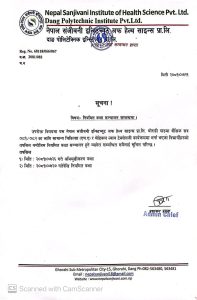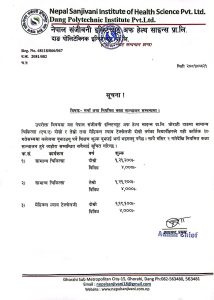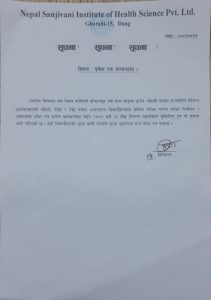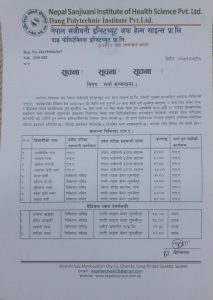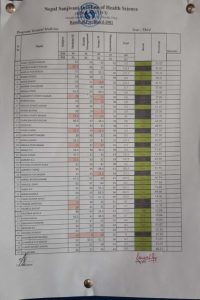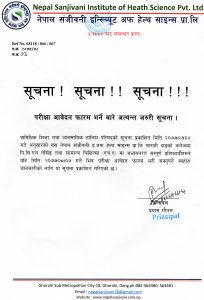Proficiency Certificate Level in Lab Technician(CMLT)
Program Overview
The Diploma in Lab Technician (CMLT) offered by the Council for Technical Education and Vocational Training (CTEVT) is a comprehensive program designed to equip students with the essential skills and knowledge required for effective laboratory work in the healthcare sector. The program focuses on various aspects of clinical laboratory technology, including diagnostic procedures, specimen analysis, and the operation of laboratory equipment. It emphasizes both theoretical learning and practical training, ensuring that graduates are proficient in conducting tests, analyzing results, and maintaining high standards of laboratory practice. By preparing students to handle a wide range of diagnostic tools and techniques, the CMLT program aims to enhance the quality of patient care and support the overall efficiency of healthcare services.
Curriculum
The CMLT curriculum is structured to provide a well-rounded education in clinical laboratory technology. The program typically includes courses in fundamental subjects such as human anatomy and physiology, medical microbiology, hematology, clinical biochemistry, and immunology. Additionally, students receive hands-on training in laboratory techniques, such as blood testing, urine analysis, and microbial culture. The curriculum is designed to balance theoretical knowledge with practical skills, including the use of modern diagnostic equipment and adherence to laboratory safety protocols. Emphasis is placed on problem-solving, critical thinking, and the ability to work effectively as part of a healthcare team. Through a combination of lectures, laboratory exercises, and clinical placements, students gain the expertise needed to excel in the field.
Admission Requirements
To be eligible for admission into the CMLT diploma program, applicants must meet certain criteria. Generally, candidates need to have completed their School Leaving Certificate (SLC) or an equivalent secondary education with a strong background in science subjects such as biology and chemistry. Additionally, prospective students are often required to pass an entrance examination or an interview, which assesses their aptitude for laboratory work and understanding of basic scientific principles. The selection process may also include evaluation of academic records and other relevant qualifications. Meeting these requirements ensures that students have the foundational knowledge and skills necessary to succeed in the rigorous training of the CMLT program.
Career Opportunities
Graduates of the CMLT diploma program have a wide range of career opportunities within the healthcare sector. They can work as laboratory technicians in hospitals, diagnostic centers, and clinics, where they perform critical tests and analyses to aid in patient diagnosis and treatment. Other potential roles include positions in research laboratories, public health agencies, and pharmaceutical companies. Additionally, graduates may find opportunities in educational institutions or pursue further studies to specialize in areas such as medical technology or laboratory management. The demand for skilled lab technicians continues to grow as the healthcare industry expands, offering promising career prospects and the chance to make a significant impact on patient care.
Importance to Nepal’s Healthcare System
The Diploma in Lab Technician program plays a crucial role in Nepal’s healthcare system by addressing the need for qualified professionals who can conduct essential diagnostic tests. In a country where access to healthcare services can be limited, having trained lab technicians ensures that diagnostic processes are efficient and accurate, which is vital for effective disease management and treatment. Lab technicians help bridge the gap between clinical symptoms and appropriate medical interventions, contributing to improved patient outcomes. Moreover, their work supports public health initiatives by providing data necessary for disease surveillance and health monitoring. As Nepal continues to develop its healthcare infrastructure, the role of skilled lab technicians becomes increasingly important in enhancing the overall quality and accessibility of medical services.

